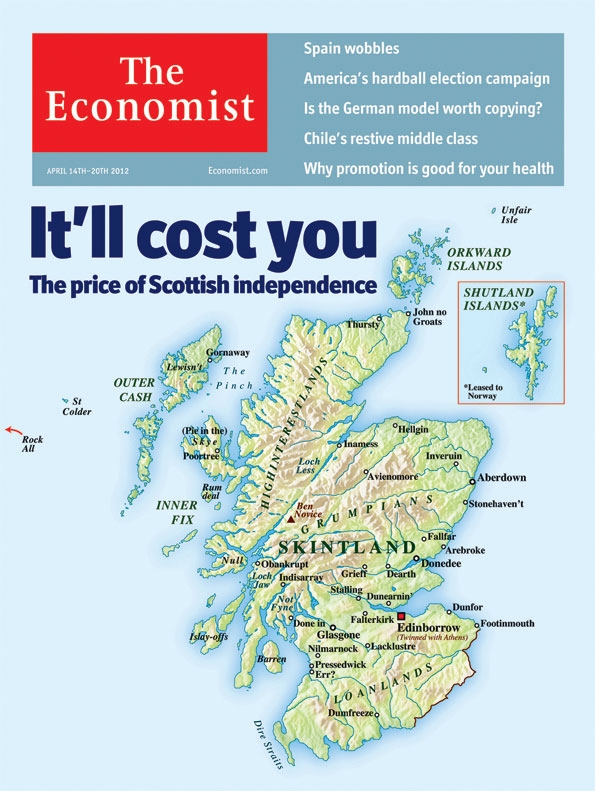 |
| The Economist weighs in. Picture Credit: The Economist Magazine. |
The BBC's Robert Peston has a blog post here discussing the problems that this raises; for those G and P students who don't study economics, the short version is that keeping the Pound would limit the benefits of independence for Scotland and also could prove very expensive and economically disastrous.
Quite how this plays in Scotland is uncertain (although a member of the History and Politics dept has his own ideas), but recent polls are showing that the "Yes" camp are gaining ground.
Update (12/2/14): George Osborne will be spelling out clearly that an independent Scotland will not be able to be part of a currency union. Somewhat predictably the SNP are attacking this and calling it "bullying".
Great for G and P students contemplating referendums, the structure of the UK and the power of parliament; as commentator Bill Jamieson says about the issue in the same article, this is probably an issue for the Westminster Parliament, not a Conservative Chancellor.
Apparently, according to Nick Robinson, all three major political parties are lining up to agree that an independent Scotland will not be able to share the pound. A Treasury review by officials is putting more analysis for us all to chew over.
Also - in referendums, people vote with their hearts rather than thinking hard-headedly about the economics of currency union and debt distribution.
Update: 18/2/14: Alex Salmond, the SNP leader and the European Commission President Jose Manuel Barroso have both weighed in.
Salmond has interestingly dismissed the Westminster argument about the currency and said that the cost to the UK of a different currency would be £500 million in transaction costs.
Barroso's contribution is marginally complex but essentially hinges on the problem that other EU states with areas that want independence (Eg Spain) don't want the sight of newly independent countries being given rapid EU membership. This would cause all sorts of domestic issues for them. Barroso essentially said that joining would be "difficult".
Quite where this leads the "Yes" campaign in the referendum is still to be seen. The Telegraph has a blog post which sees these events as fairly catastrophic for the Nationalists (albeit, this paper is very pro-Union)


